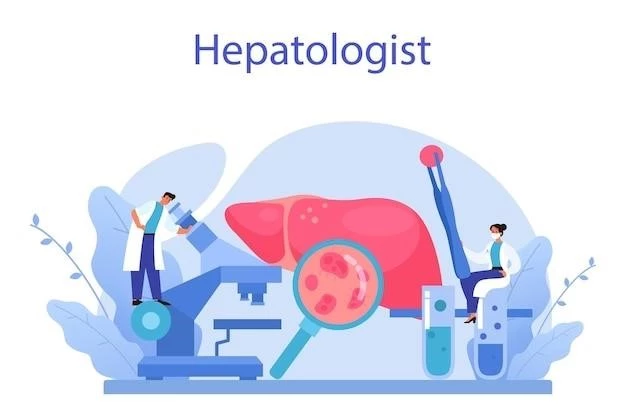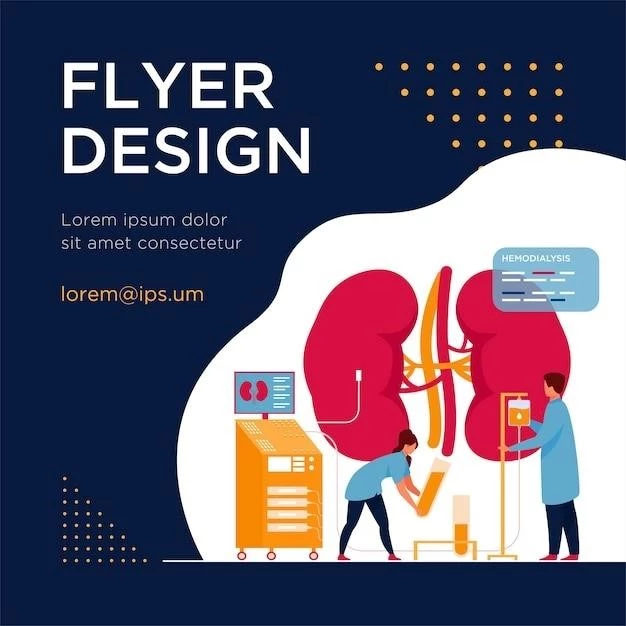Causes of Biliary Cirrhosis
Biliary cirrhosis can be caused by genetic factors‚ autoimmune reactions‚ and bile duct obstructions.
Genetic Factors
Genetic factors play a crucial role in biliary cirrhosis‚ with certain gene variations increasing susceptibility. These genetic predispositions can impact the immune response and bile duct function‚ contributing to the development of the condition.
Autoimmune Reaction
In biliary cirrhosis‚ an autoimmune reaction occurs where the body’s immune system mistakenly attacks the bile ducts‚ leading to inflammation and scarring. This immune response contributes significantly to the progression of the disease.
Obstruction of Bile Ducts
The obstruction of bile ducts can lead to biliary cirrhosis by causing a build-up of bile in the liver. This backflow of bile can trigger inflammation‚ scarring‚ and ultimately‚ cirrhosis. Identifying and addressing these obstructions is crucial in the management of the condition.
Symptoms of Biliary Cirrhosis
Biliary cirrhosis may manifest with fatigue‚ itchy skin‚ and jaundice.
Fatigue and Weakness
One common symptom of biliary cirrhosis is persistent fatigue and weakness‚ which can significantly impact daily life. These symptoms may result from the liver’s compromised ability to function properly due to the progression of the disease.
Itchy Skin
Patients with biliary cirrhosis often experience pruritus‚ or itchy skin‚ as a result of the accumulation of bile salts under the skin. This symptom can be distressing and impact the individual’s quality of life‚ highlighting the importance of managing it effectively.
Jaundice
Jaundice‚ characterized by yellowing of the skin and eyes‚ is a common symptom of biliary cirrhosis. It occurs due to the build-up of bilirubin in the blood‚ indicating liver dysfunction. Monitoring and managing jaundice are essential in the overall care of patients with biliary cirrhosis.
Diagnosis of Biliary Cirrhosis
Accurate diagnosis involves blood tests‚ imaging studies‚ and liver biopsy.
Blood Tests
Blood tests play a key role in diagnosing biliary cirrhosis by assessing liver function and detecting specific markers such as elevated liver enzymes and bilirubin levels. These tests provide essential information for healthcare professionals to evaluate the condition of the liver accurately.
Imaging Studies (CT‚ MRI)
Imaging studies such as CT scans and MRI are valuable tools in diagnosing biliary cirrhosis as they allow healthcare providers to visualize the liver and bile ducts. These non-invasive techniques aid in assessing the extent of liver damage and identifying potential causes of cirrhosis.
Liver Biopsy
A liver biopsy is a definitive diagnostic procedure for biliary cirrhosis‚ involving the extraction of a small tissue sample from the liver for microscopic examination. This procedure provides crucial insights into the extent of liver damage‚ helping to confirm the diagnosis and determine the appropriate treatment approach.

Treatment Options for Biliary Cirrhosis
Treatment options include medications‚ endoscopic therapy‚ and liver transplant.
Medications
Medications play a vital role in managing biliary cirrhosis by controlling symptoms‚ reducing inflammation‚ and slowing disease progression. Patients may be prescribed medications such as ursodeoxycholic acid‚ corticosteroids‚ or immunosuppressants to help alleviate symptoms and improve liver function.
Endoscopic Therapy
Endoscopic therapy is utilized in biliary cirrhosis to address specific complications such as bile duct blockages. Procedures like endoscopic retrograde cholangiopancreatography (ERCP) can help alleviate obstructions and improve bile flow‚ thereby reducing symptoms and preventing further liver damage.
Liver Transplant
Liver transplant is considered in cases of advanced biliary cirrhosis where other treatments have been ineffective. It involves surgically replacing the damaged liver with a healthy donor liver‚ offering a potential cure for end-stage liver disease and improving long-term outcomes for patients.
Complications of Biliary Cirrhosis
Complications may include portal hypertension‚ ascites‚ and hepatic encephalopathy.
Portal Hypertension
Portal hypertension‚ a common complication of biliary cirrhosis‚ occurs when there is increased pressure in the portal vein. This can lead to serious consequences such as variceal bleeding and necessitates close monitoring and management to prevent further complications.
Ascites
Ascites‚ the accumulation of fluid in the abdominal cavity‚ is a common complication of biliary cirrhosis. This condition can lead to discomfort and increased risk of infection. Management typically involves dietary changes‚ medications‚ and sometimes drainage procedures to alleviate symptoms and prevent complications.
Hepatic Encephalopathy
Hepatic encephalopathy‚ a serious complication of biliary cirrhosis‚ results from the build-up of toxins in the brain due to liver dysfunction. Symptoms include confusion and impaired cognition. Treatment involves managing the underlying liver disease and addressing contributing factors to improve cognitive function.
Lifestyle Changes for Biliary Cirrhosis
Diet modifications‚ alcohol avoidance‚ and exercise recommendations.
Diet Modifications
Diet modifications are essential in biliary cirrhosis to reduce stress on the liver. A low-sodium diet‚ adequate protein intake‚ and avoidance of processed foods can help manage symptoms and support liver function. Consultation with a healthcare provider or a dietitian is recommended for personalized dietary recommendations.
Alcohol Avoidance
Avoiding alcohol is paramount in biliary cirrhosis to prevent further liver damage. Alcohol can exacerbate inflammation and worsen liver function‚ leading to complications. Complete abstinence or strict moderation is advised to support liver health and enhance overall well-being in individuals with biliary cirrhosis.
Exercise Recommendations
Exercise is beneficial in biliary cirrhosis to improve muscle strength‚ overall fitness‚ and mental well-being. Regular physical activity can help combat fatigue‚ maintain a healthy weight‚ and reduce the risk of complications. It is essential to consult with healthcare providers to develop a safe and effective exercise regimen tailored to individual needs.
Research and Development in Biliary Cirrhosis
New drug therapies‚ surgical advancements‚ and clinical trials.
New Drug Therapies
Ongoing research is focused on developing new drug therapies for biliary cirrhosis to address underlying causes‚ reduce symptoms‚ and improve liver function. These advancements aim to enhance treatment outcomes and quality of life for individuals affected by the condition.
Advancements in Surgical Techniques
Ongoing advancements in surgical techniques for biliary cirrhosis are aimed at improving outcomes of procedures such as liver transplants and bile duct surgeries. These innovations strive to enhance surgical efficacy‚ reduce complications‚ and provide better long-term results for patients with advanced liver disease.
Clinical Trials
Clinical trials play a crucial role in advancing the understanding and treatment of biliary cirrhosis. By testing new therapies and interventions‚ these trials aim to enhance patient care‚ evaluate treatment efficacy‚ and contribute to the development of innovative approaches for managing this complex liver disease.
Support Groups for Biliary Cirrhosis
Online forums‚ local support groups‚ and counseling services.
Online Forums
Online forums provide a platform for individuals with biliary cirrhosis to connect‚ share experiences‚ and seek advice from peers. These virtual communities offer valuable support‚ information‚ and a sense of community for patients and caregivers navigating the challenges of living with the condition.
Local Support Groups
Local support groups offer in-person meetings for individuals affected by biliary cirrhosis to connect‚ share insights‚ and receive emotional support. These gatherings facilitate personal interactions‚ practical advice‚ and a sense of camaraderie among members facing similar challenges. Participation in local support groups can provide a valuable source of encouragement and understanding.
Counseling Services
Counseling services provide psychological support for individuals dealing with biliary cirrhosis‚ helping them cope with the emotional impact of the disease. Professional counselors offer guidance‚ coping strategies‚ and a safe space to discuss fears and challenges‚ promoting mental well-being and resilience during the management of this chronic condition.
